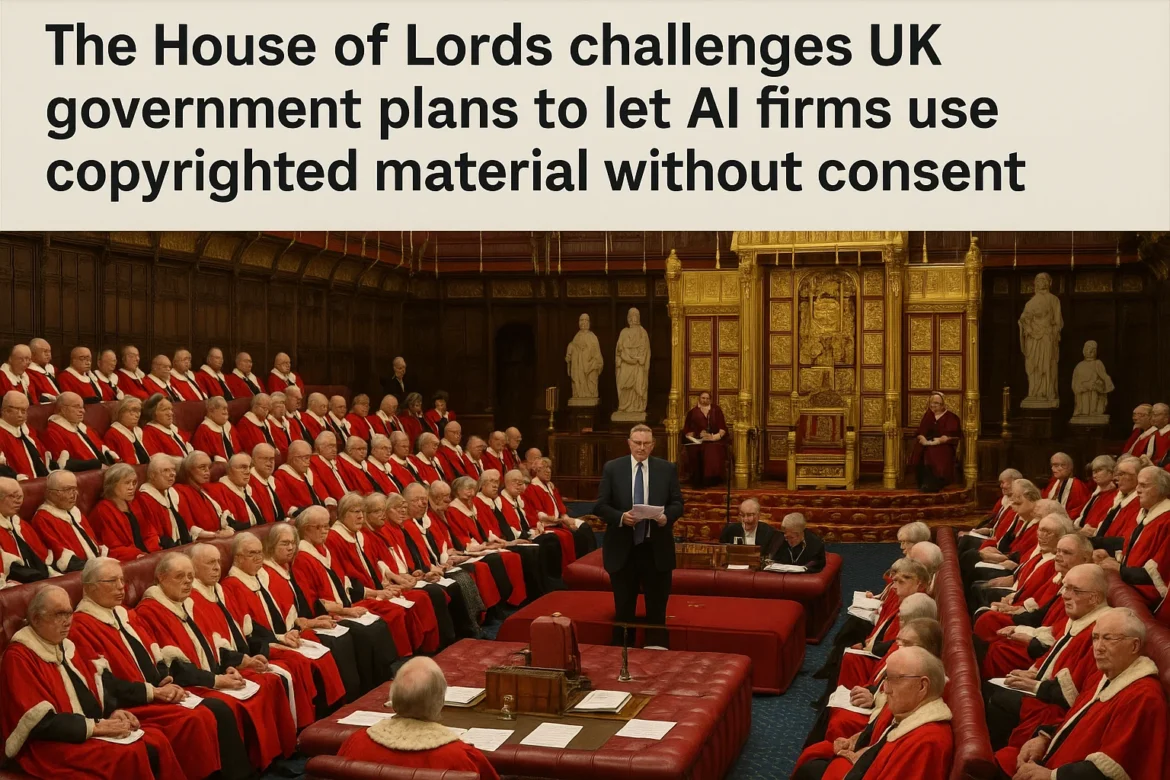House of Lords Challenges AI Copyright Provisions: A Win for Creators’ Rights?
The UK government’s proposal to allow artificial intelligence (AI) companies to use copyrighted material without obtaining explicit permission has sparked significant backlash. In a landmark move, the House of Lords has intervened, passing an amendment requiring AI firms to disclose any copyrighted content used in the training of their models. This decision marks a pivotal moment in the growing debate around AI regulation and intellectual property rights in the United Kingdom.
Why the Proposal Faced Opposition
The government’s initial stance aimed to promote AI innovation by providing broader access to copyrighted material for model training purposes. However, this proposal triggered alarm among creators, musicians, authors, and visual artists, who viewed it as a direct threat to their intellectual property.
Over 400 renowned artists — including Elton John, Paul McCartney, and Dua Lipa — signed an open letter addressed to Prime Minister Keir Starmer, urging the government to reinforce copyright protections in the face of rapid AI development. Their collective voice highlighted a growing concern: that artists and creators risk being exploited by technologies that repurpose their work without consent or compensation.
The House of Lords Amendment
Responding to these concerns, the House of Lords passed an amendment that demands transparency from AI companies. Under this new provision, developers of generative AI models must disclose the use of copyrighted materials in training data. This move does not outright ban such use but ensures that creators have visibility and, potentially, a path to claim their rights.
Key Points of the Amendment:
- Mandatory disclosure of copyrighted content used in AI training.
- Aims to create greater accountability and transparency within the AI industry.
- Seen as a compromise between innovation and creator protection.
Implications for the AI Industry and Creators
This development has significant implications:
- For AI developers: The amendment could increase compliance costs and may limit the datasets available for model training.
- For creators: It offers a measure of protection and acknowledgment, possibly paving the way for future licensing frameworks.
- For policymakers: It sets a precedent for balancing AI progress with ethical and legal safeguards.
The Bigger Picture: Global AI Copyright Battles
The UK is not alone. Around the world, nations are grappling with how to regulate AI’s use of copyrighted works. From the United States to the European Union, legal challenges and legislative proposals are emerging to ensure AI development respects the rights of human creators.
Conclusion
The House of Lords’ intervention reflects growing awareness of the need for balanced AI regulation. While innovation remains vital, so does the need to protect the intellectual property and livelihoods of creators. As AI continues to evolve, the UK’s decision could influence global discussions on ethics, copyright, and the future of artificial intelligence.


